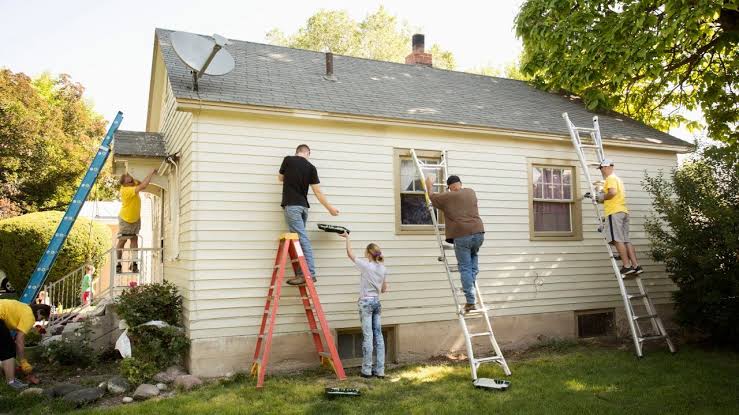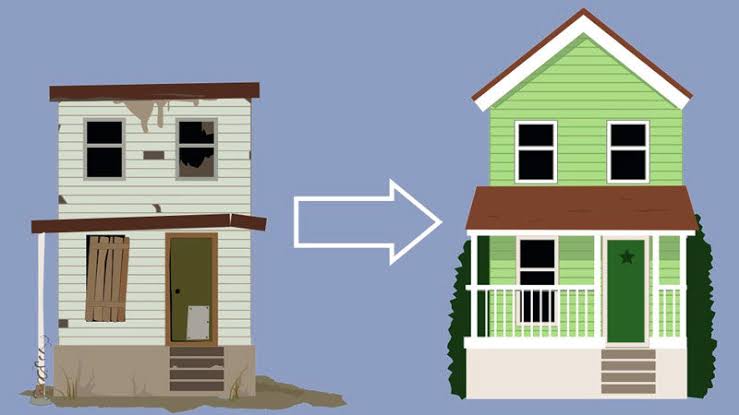Are you curious on how to find investors for house flipping? Here is a guide. Flipping houses has become an increasingly popular investment strategy in recent years. It offers the potential for substantial profits, but it also requires significant upfront capital.
For many aspiring house flippers, finding investors willing to finance their projects can be a challenging hurdle to overcome. In this article, we will explore effective strategies to help you find investors for your house flipping endeavors and increase your chances of securing the necessary funding.
Build a Solid Network: Networking is crucial when it comes to finding investors for house flipping. Start by reaching out to friends, family, and colleagues who may have the means and interest to invest in real estate projects. Attend local real estate investment club meetings, industry conferences, and networking events to connect with potential investors.
Join online communities and forums where real estate investors gather to share knowledge and opportunities. Expanding your network significantly enhances your chances of finding individuals with a shared interest in house flipping.
Develop a Compelling Business Plan: Investors want to see a well-thought-out and detailed business plan before committing their capital. Your business plan should include a clear investment strategy, financial projections, market analysis, and a well-defined timeline for each project.
Showcase your expertise in house flipping and highlight any previous successful ventures or relevant experience. A comprehensive business plan demonstrates your professionalism and helps instill confidence in potential investors.
Leverage Social Media and Online Platforms: Harness the power of social media platforms and online communities to showcase your house flipping projects and attract investors. Create a professional website or a dedicated landing page that highlights your previous successes, testimonials, and your unique value proposition.
Utilize social media channels like Instagram, Facebook, and LinkedIn to share project updates, before-and-after photos, and success stories. Engage with your audience by providing valuable insights, tips, and answering their questions. Establishing a strong online presence can attract investors who are actively seeking real estate investment opportunities.
Seek out Real Estate Investment Groups: Explore local real estate investment groups or angel investor networks that specifically focus on real estate ventures. These groups often consist of individuals who are actively looking for investment opportunities.
Attend their meetings, present your business plan, and network with the members. Building relationships within these groups can lead to valuable connections and potential investors who have a keen interest in the real estate industry.
Collaborate with Hard Money Lenders: Hard money lenders are private individuals or companies that provide short-term loans secured by real estate. They are often more flexible than traditional lenders and can be a great source of funding for house flipping projects.
Develop relationships with reputable hard money lenders and establish a track record of successful projects to increase your chances of securing financing. The lenders’ expertise in the real estate market can also provide valuable insights and guidance throughout the flipping process.
Consider Joint Ventures:.Partnering with other experienced real estate investors through joint ventures can provide access to both capital and expertise. Seek out potential partners who have a strong track record in house flipping and complementary skills.
Joint ventures can be mutually beneficial, as they allow you to leverage each other’s resources, networks, and knowledge. Ensure that all partnership agreements are legally binding and clearly define the roles, responsibilities, and profit-sharing arrangements.
Finding investors for house flipping requires strategic planning, networking, and a compelling business plan. Build a strong network, both online and offline, and actively seek out potential investors through real estate investment groups and social media platforms.
Develop a solid business plan that showcases your expertise and previous successes. Consider partnering with experienced investors or collaborating with hard money lenders to secure the necessary funding. With dedication and perseverance, you can find the investors you need to embark on successful house flipping projects and unlock the door to lucrative opportunities.
Read Also: Gudie on Income Tax Preparation
Flipping houses investment network

Real estate investment has long been a popular avenue for generating wealth and creating financial independence. One specific strategy that has gained significant attention in recent years is house flipping. This exciting and dynamic investment approach involves purchasing properties, renovating them, and then selling them at a profit.
To maximize success in this competitive market, many investors have turned to the Flipping Houses Investment Network, a powerful platform that connects investors, contractors, and real estate professionals.
Understanding House Flipping: House flipping involves buying a property, often distressed or undervalued, with the intention of improving its condition through renovations or repairs.
The goal is to sell the property quickly for a higher price than the purchase and renovation costs, thus generating a profit. Flippers typically focus on cosmetic improvements and strategic upgrades that increase the market value and appeal to potential buyers.
The Flipping Houses Investment Network: The Flipping Houses Investment Network serves as a comprehensive platform for real estate investors, providing access to a wide range of resources and connections.
This network acts as a hub, connecting investors with key professionals such as contractors, real estate agents, and property managers who specialize in the house flipping market. By joining this network, investors can tap into a wealth of expertise and streamline their house flipping endeavors.
Advantages of the Flipping Houses Investment Network
Access to a Diverse Network: One of the primary advantages of the Flipping Houses Investment Network is its ability to connect investors with a diverse group of professionals.
Whether you need an experienced contractor to handle renovations or a seasoned real estate agent to assist with property acquisitions and sales, the network provides access to a pool of qualified individuals who understand the nuances of the house flipping process. This broad network can save investors time and effort by connecting them with reliable and trustworthy experts.
Knowledge Sharing and Education: Flipping houses requires a deep understanding of the real estate market, renovation strategies, financing options, and legal considerations. The Flipping Houses Investment Network offers a platform for investors to learn from experienced flippers and industry professionals.
Through webinars, forums, and educational resources, investors can expand their knowledge base and enhance their decision-making skills. This access to valuable insights helps mitigate risks and increases the chances of success.
Deal Sourcing and Analysis: The Flipping Houses Investment Network provides investors with access to a constant stream of potential deals. By leveraging the network’s resources, investors can gain access to off-market properties, foreclosure auctions, and motivated sellers.
Moreover, the network often includes tools and software for analyzing and evaluating potential deals, enabling investors to make informed decisions based on accurate data and market trends.
Collaboration and Partnership Opportunities: House flipping is often a team effort. The Flipping Houses Investment Network allows investors to connect with like-minded individuals, fostering collaboration and partnership opportunities.
By forming relationships with other investors, contractors, or real estate professionals within the network, investors can leverage shared resources, split costs, and expand their reach. Collaborative efforts not only mitigate risk but also accelerate growth and increase profitability.
Financing and Funding Options: Obtaining financing for house flipping projects can be a significant challenge. The Flipping Houses Investment Network offers access to a range of funding options specifically tailored to real estate investors.
From private lenders to hard money loans, the network connects investors with sources of capital that understand the unique needs of house flippers. This access to flexible funding can be instrumental in scaling up one’s flipping business.
Flipping houses can be a lucrative investment strategy, but success requires knowledge, expertise, and a strong network of professionals. The Flipping Houses Investment Network provides a platform that connects investors with the right people and resources to thrive in this competitive market.
By joining this network, investors can access a wealth of knowledge, collaborate with industry experts, and find lucrative deals that might otherwise be out of reach. As the house flipping industry continues to evolve, leveraging the power of a specialized network becomes increasingly essential for maximizing profitability and minimizing risks in this exciting investment endeavor.
House Flipping Joint Ventures
House flipping has gained significant popularity in the real estate industry as a lucrative investment strategy. It involves purchasing a property, renovating it, and then selling it quickly for a profit. While house flipping can be a rewarding venture, it also comes with its fair share of risks and challenges.
One way to mitigate these challenges and maximize profits is through house flipping joint ventures. In this article, we will explore the concept of house flipping joint ventures and discuss their benefits, considerations, and key success factors.
Understanding House Flipping Joint Ventures
A house flipping joint venture is a partnership between two or more individuals or entities who pool their resources, expertise, and capital to acquire, renovate, and sell properties for a profit.
Each partner brings unique skills and contributions to the venture, such as financing, property management, construction expertise, or marketing abilities. By combining their strengths, joint venture partners can leverage their collective knowledge and resources to undertake larger and more profitable house flipping projects.
Benefits of House Flipping Joint Ventures
Increased financial resources: Joint ventures allow partners to combine their financial resources, enabling them to pursue more substantial house flipping projects that might be beyond the scope of individual investors.
This increased capital can be used for property acquisition, renovations, marketing efforts, and contingencies, reducing the financial strain on individual partners.
Diversification of expertise: Successful house flipping requires a broad range of skills, including real estate market analysis, property evaluation, construction management, and marketing. Joint ventures bring together partners with diverse backgrounds and expertise, ensuring that all aspects of the project are handled competently. This diversification of skills helps minimize risks and increases the chances of success.
Shared risks and responsibilities: House flipping joint ventures distribute risks among partners, reducing individual exposure. Partners can share responsibilities such as project management, property inspections, obtaining permits, and legal and financial obligations. By sharing the workload, partners can benefit from reduced stress and improved efficiency.
Learning opportunities: Collaborating with experienced partners in joint ventures provides valuable learning opportunities. Novice house flippers can gain insights from seasoned professionals, acquire new skills, and expand their network within the real estate industry. The knowledge gained from joint ventures can be applied to future projects, enhancing long-term success.
Read Also: How to Find Investors for Your Small Business
Considerations for House Flipping Joint Ventures

Clear communication and mutual goals: Successful joint ventures require open and honest communication among partners. It is crucial to establish common goals, clarify expectations, and define each partner’s roles and responsibilities from the outset. Regular meetings and transparent reporting mechanisms ensure that all partners are well-informed and aligned throughout the project.
Compatibility and trust: Compatibility among joint venture partners is essential for a smooth and successful collaboration. Partners should share similar values, work ethics, and a common vision for the project. Building trust and maintaining effective working relationships are fundamental to the joint venture’s long-term viability.
Legal agreements and structures: Partners should seek legal advice to draft comprehensive joint venture agreements that clearly outline the terms and conditions of the collaboration. These agreements should cover aspects such as profit-sharing arrangements, decision-making processes, dispute resolution mechanisms, exit strategies, and non-disclosure agreements to protect proprietary information.
Risk assessment and contingency planning: Prior to embarking on a joint venture, partners should conduct a thorough risk assessment, considering factors such as market volatility, unforeseen renovation costs, potential delays, and changes in local regulations. It is crucial to develop contingency plans and allocate sufficient resources to mitigate these risks effectively.
Key Success Factors
Market research and due diligence: Partners must conduct comprehensive market research to identify suitable properties for flipping. Thorough due diligence, including property inspections, title searches, and analysis of comparable sales, is crucial for accurate property valuation and informed decision-making.
Effective project management: Efficient project management is vital for successful house flipping ventures. Partners should establish clear timelines, monitor progress regularly, and ensure that renovations are completed on schedule and within budget. Effective coordination among partners, contractors, and other stakeholders is essential for smooth project execution.
Quality renovations and cost control: High-quality renovations significantly impact the resale value of a property. Joint venture partners should focus on cost-effective improvements that maximize the property’s appeal without overspending. Regular monitoring of renovation costs and vendor performance helps control expenses and ensures optimal returns on investment.
Strategic marketing and sales: A well-executed marketing strategy plays a pivotal role in attracting potential buyers and achieving a quick sale. Joint venture partners should collaborate to develop a comprehensive marketing plan that includes staging, professional photography, online listings, and targeted advertising to reach the right audience and secure profitable offers.
House flipping joint ventures offer an effective way to mitigate risks, leverage resources, and maximize profits in the competitive world of real estate investment. By combining the strengths and expertise of multiple partners, investors can undertake more substantial projects, diversify risk, and access new learning opportunities.
However, successful joint ventures require clear communication, compatibility among partners, comprehensive legal agreements, diligent research, efficient project management, and strategic marketing. With careful planning and execution, house flipping joint ventures can be a rewarding path to financial success in the real estate market.
